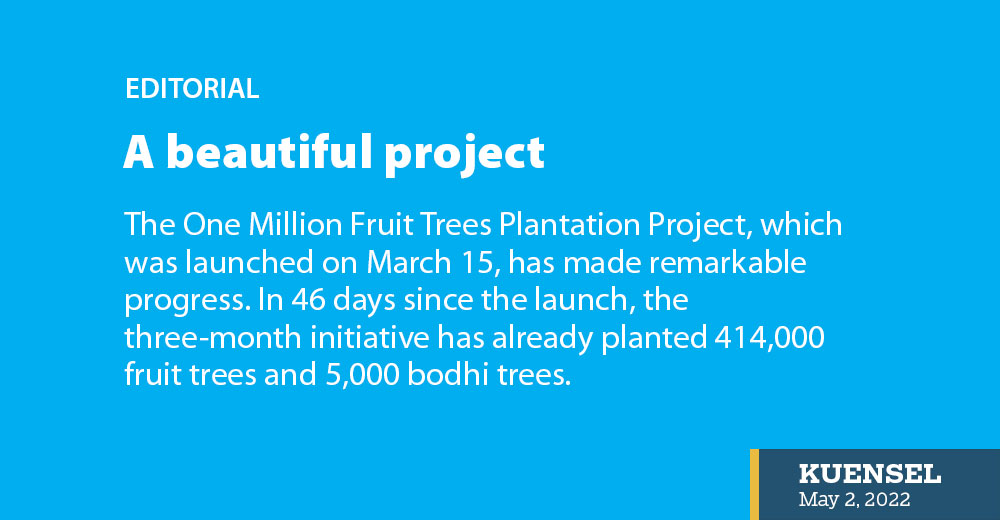The One Million Fruit Trees Plantation Project, which was launched on March 15, has made remarkable progress. In 46 days since the launch, the three-month initiative has already planted 414,000 fruit trees and 5,000 bodhi trees.
The plantation in the sub-tropical region began on April 25; nine varieties of fruit trees consisting of dragon fruit, guava, lychee, mango, passion fruit, pomegranate, avocado, banana, and citrus have been distributed for plantation in the region.
The project is expected to help 140,827 rural households in the country. But it is the overall objective of the project that we must truly appreciate—to introduce technically suitable and diverse high-value fruit crops to enhance the income of rural households.
Twenty-two assorted fruits have been selected for the project. The project is also expected to help skill de-suups in fruit crop management. More than 230 de-suups have been trained in land preparation for fruit tree plantation and management. They are leading more than 1,330 de-suups to plant 550,000 sub-tropical fruit trees.
According to the project, the fruit trees are expected to bear fruits within 3 to 4 years from the date of the plantation and the total production is estimated at 33,391 metric tonnes of fruits annually, contributing significantly to our national food and nutrition security besides enhancing rural income.
It is about time agriculture development took a significant turn—from import-driven to export-driven. The idea of import substitution must not just be a policy document.
We have a long tradition of planting trees and the world beyond knows Bhutan and Bhutanese as lovers of greenery and true custodians of nature and the environment. However, most of the trees that we plant year after year are left without care. The good news is that to monitor the care and growth of the saplings, each plant will be geo-coded using Smart App (Mobile Operation and Data Acquisition).
The project, in its next phase, can take the plantation programme to the urban areas—in the parks and waysides, which will result in a double advantage: we will have fruits for anyone to pick and the changing seasons will add beautiful colours to our cityscapes.
More important, we will have, in the long run, instilled in the hearts of every Bhutanese child love and respect for nature. Each one of us has the duty to care for and beautify our communities; in some countries, planting fruit trees is developed around the idea of addressing food shortage.


